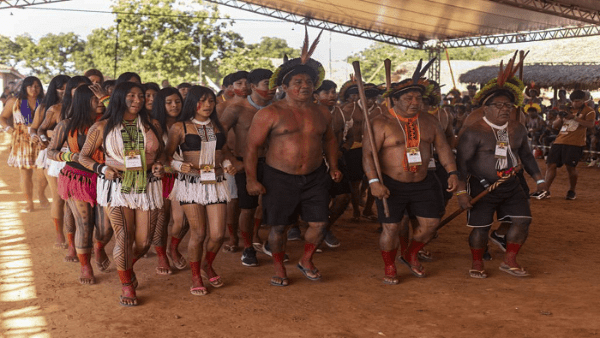
Brasilia, July 28 (RHC)-- The report "Violence against Indigenous Peoples in Brazil During 2022," published by the Indigenous Missionary Council (CIMI), shows that during the presidency of Jair Bolsonaro, 795 cases of homicides against indigenous people were recorded throughout the country.
According to the text, in first place are the states of Roraima and Amazonas, areas of the Yanomami Indigenous Land (TIY), where 208 and 163 cases of murders occurred, respectively. In third place is Mato Grosso do Sul with 146 reports. The three federative units accounted for 65 percent of the total number of violent deaths.
Likewise, CIMI points out that these three states also had the highest suicide rates, as between 2019 and 2022 a total of 535 people took their own lives, of which 74 percent resided in Roraima, Amazonas and Mato Grosso do Sul.
It also transcended the increase in conflicts over territorial rights, especially in 2022, when 158 violent events were reported, coupled with 309 cases of illegal exploitation of natural resources, invasions and damage to indigenous property in 218 native territories in 25 states of the South American giant.
As if all this were not enough, the records provided through the Access to Information Law revealed the death of 835 indigenous minors in 2022 alone. One of the publication's coordinators, Lucia Helena Rangel, revealed that "Children are the biggest victims of this scenario of violence."
The report provides information from four years of the Bolsonaro government, in which indigenous land demarcations were completely paralyzed, conflicts increased and a group of public policies aimed at safeguarding indigenous peoples and their territories were dismantled.
Roberto Antonio Liebgott, organizer of the CIMI report, emphasized that "This report, unlike the others, closes a cycle of perversity, of four years of brutality. That is why we took the trouble to bring the data collected from the last four years." "We are facing a scenario of horrors," Rangel added.
The launch of the report was held at the National Conference of Bishops of Brazil (CNBB) and was attended by indigenous leaders and representatives of CNBB and Cimi, such as Ricardo Hoepers, secretary general of CNBB; Roque Paloschi, president of Cimi and archbishop of Porto Velho, among other attendees.

